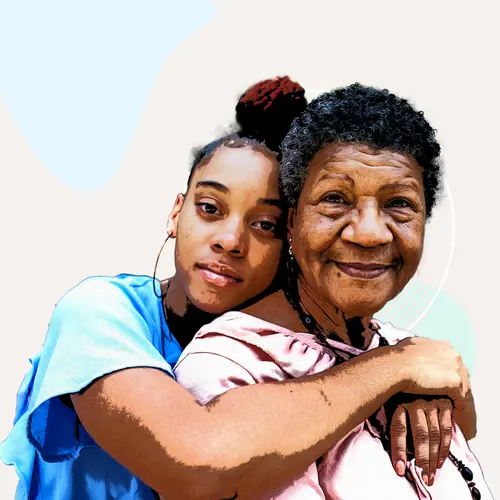Home safety is always important, but it’s a special concern when you’re caring for a person with Alzheimer’s. You need to do what you can to make sure your loved one’s surroundings are as safe and comfortable as possible. A few basic changes can help.
Entrances and Exits
- Make sure that doorways are well-lit and free of clutter. Sensors that turn on outside lights when someone approaches the house can be a good idea.
- Check that door locks work well and can open easily in an emergency.
- Make sure stairs or ramps are in good repair and have a secure hand rail.
- Think about posting a “No Solicitors” sign for the front door.
Kitchen
- Put child-proof latches on cabinets and drawers that have fragile, valuable, or dangerous items.
- Lock up household cleaning products, matches, knives, scissors, and other hazards.
- Keep your loved one from using dangerous appliances. Install safety knobs on the stove. Disconnect your garbage disposal. Get rid of anything that doesn’t work properly.
- Remove fake fruits or decorations that look like food so your loved one doesn’t mistake them for something edible.
- If you keep medications in the kitchen, store them in a locked cabinet or drawer.
Bedroom
- Make sure your loved one can get in and out of bed safely. Consider putting mats on the floor next to the bed, as long as they’re not a trip or slip hazard.
- Place lamps or light switches near the bed, or use a nightlight.
- A monitoring system, like a baby monitor, can help you hear when your loved one gets out of bed or needs help.
- Make a clear path to the bathroom.
Bathroom
- Can your loved one safely get in and out of the shower or bathtub? If not, install grab bars on the inside and outside. Towel racks aren’t sturdy enough to be used as grab bars.
- Use nonskid strips in the tub or shower. A shower stool can also help.
- Install a safety frame, raised seat, or grab bar near the toilet.
- Put medications in locked cabinets or drawers. Throw out any that have expired.
- Lock up any bathroom cleaning products and small electrical appliances.
- Think about getting a single faucet that mixes hot and cold water, instead of separate knobs, to avoid scalds.
- Replace small bath mats with a large rug that covers most of the floor. Put an adhesive back on it to keep it from slipping.
General
- Put smoke detectors and carbon monoxide alarms on each floor, and test them to be sure they work. You might need to change the batteries every few months.
- Don’t keep any space heaters, electric blankets, or other fire hazards in your home. If you must use them, follow the safety instructions and keep them on a sturdy surface away from rugs, curtains, furniture, or papers.
- Cover electrical outlets you’re not using, and take care of any wiring problems. Keep lamps and other appliances near outlets so you’re less likely to trip on the cords. You can also use tape to secure them to the floor.
- Mark any glass doors, windows, or furniture with a sticker or decal at eye level to make sure your loved one can see the panes clearly.
- Make sure your home is well-lit. Night-lights can help in bedrooms, bathrooms, hallways, and any areas your loved one might need to go at night.
- Watch out for slippery or uneven surfaces, like throw rugs, tile, or rips in the carpet. Also, make sure any walkways are clutter-free.
- Set your hot water heater to 120 degrees or lower to prevent burns from scalding tap water.
- Post emergency phone numbers and your home address next to all the phones in your home.

